Spanish translations, outreach lacking amid coronavirus pandemic: Analysis
"Why aren't we hearing from the Spanish-speaking commissioners?"
"Why aren't we hearing from the Spanish-speaking commissioners at news conferences?"
The questions began as "chisme" -- chatter among friends. Friends fueled by the same life story of immigrant parents who sacrificed for us.
We’re the first generation of our families in the United States. We carry a tremendous responsibility to represent our parents and grandparents' culture. We are the builders of a new foundation. We want to be heard.
As COVID-19 began its wrath on central Florida, the questions continued.
"What's with the little paragraph at the end of press releases saying information in Spanish would be available within 24 hours? There's a wait?"
"Donde esta el Chief?"
"El Chief" is Orlando Rolon, the Puerto Rican bilingual head of the Orlando Police Department ... the city’s chief.
I asked why he wasn't at the county news conferences as he would be ideal to address the Hispanic community.
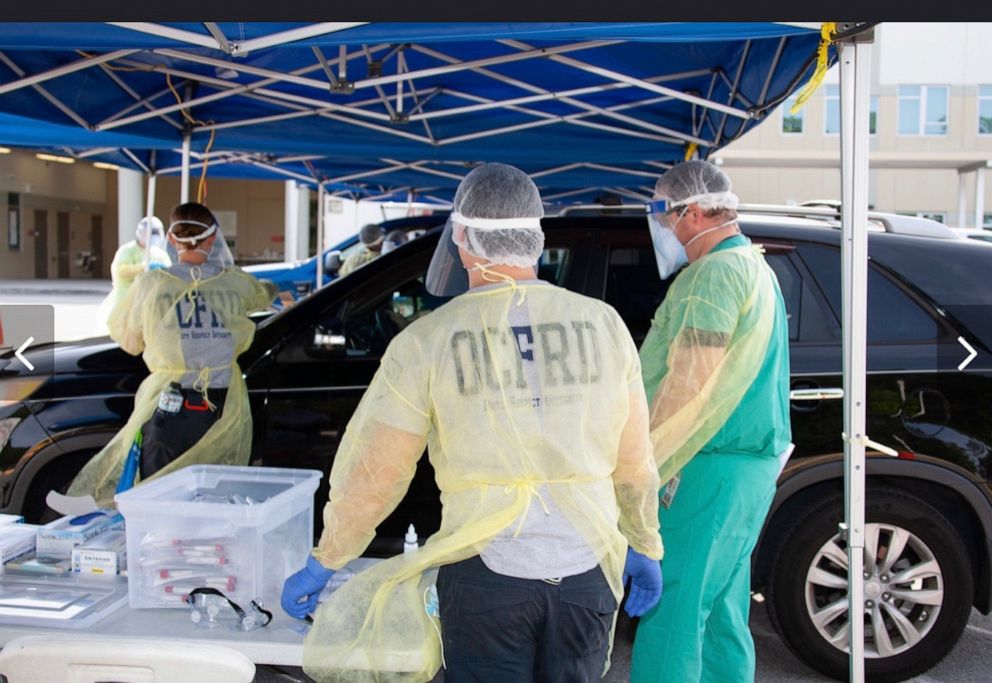
Chief Rolon is a familiar face. A firm "quedate en casa -- stay home" from him with an explanation of the consequences may have been impactful.
But we won't know.
"Orange County is the lead agency managing this health crisis and Sheriff John Mina is an elected countywide constitutional officer in charge of public safety," was the answer I received from a county spokesperson.
Well, that made sense, but "el Sheriff no habla Espanol." To be fair, even in a pandemic, speaking Spanish is not a job requirement.
'La vida' ... life ... and the coronavirus quarantine goes on.
And then, the phone call. "32822 is burning. This is Maria all over again."
"Maria" was the hurricane that ravaged Puerto Rico in 2017.
Mainland United States heard all about Maria. But some may be unaware that a large influx of Puerto Ricans came to central Florida to rebuild their lives after the hurricane's devastation. We are also home to a Venezuelan diaspora who fled the current turmoil in their country. We have a vibrant Dominican population, Cubans, Mexicans ... the list goes on.
"32822 is burning." The call about this zip code came from a local reverend and by "burning," he meant despair.
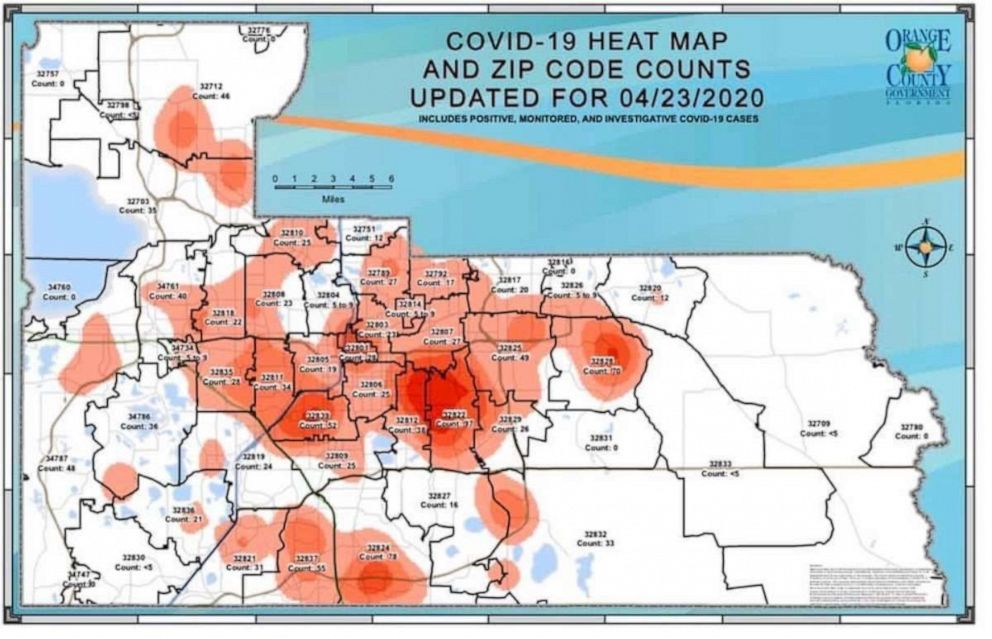
No incomes, no school, helplessness ... yes, sounds like most of America right now.
In this zip code, COVID-19 cases were rising fast, and Rev. Jose Rodriguez felt outreach was falling short.
The reverend and I spoke on the phone. We exchanged observations. He had the sense to write an open letter and was quoted in the Orlando Sentinel in English and in Spanish.
32822 is the zip code for about 60,000 residents of Orange County. That’s roughly three times the size of an average American city.
It’s 62% Hispanic.
It's also home to many in the hospitality industry -- they are the backbone of a tourism industry that at last count served 75 million plus visitors in one year. These men and women are the lowest-paid median wage workers of the top 50 metros in the country. That makes them even more vulnerable to the economic impact of this pandemic.
32822 is full of people who just need a minute.
Many are new here. They're working hard ... to pay the bills, assimilate their kids, learn a new culture and a new language.
They didn't just need words in Spanish, they needed a tangible connection to educate them and ease their fears.
In addition to Reverend Rodriguez's letter, Marucci Guzman, the head of a local nonprofit, Latino Leadership, also spoke out on the need for equal access to lifesaving information for the Hispanic community.
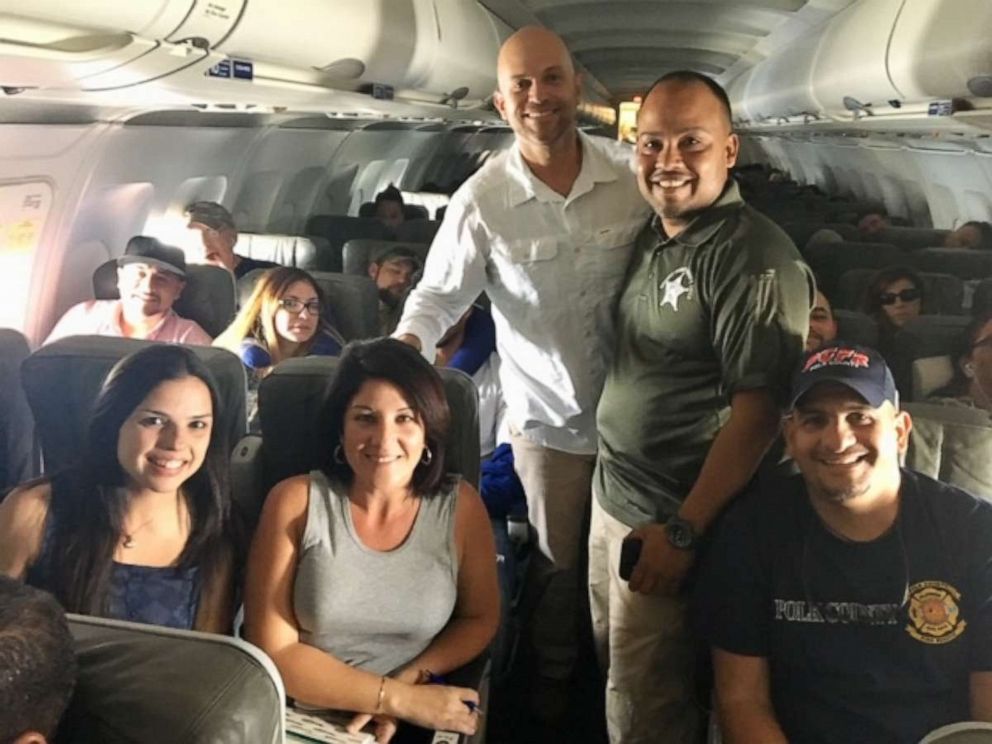
Her outreach group served hundreds of families after Hurricane Maria. Now the community was in crisis again. Guzman was their voice. "Now more than ever, the Latino community, which compromises almost 1 in 3 Orange County residents, deserves the respect of equity and access to lifesaving information," she commented.
It was in this environment that our "Hispanic Bureau" was born. OK, our group does not really have a bureau. There is no building. No one has a title.
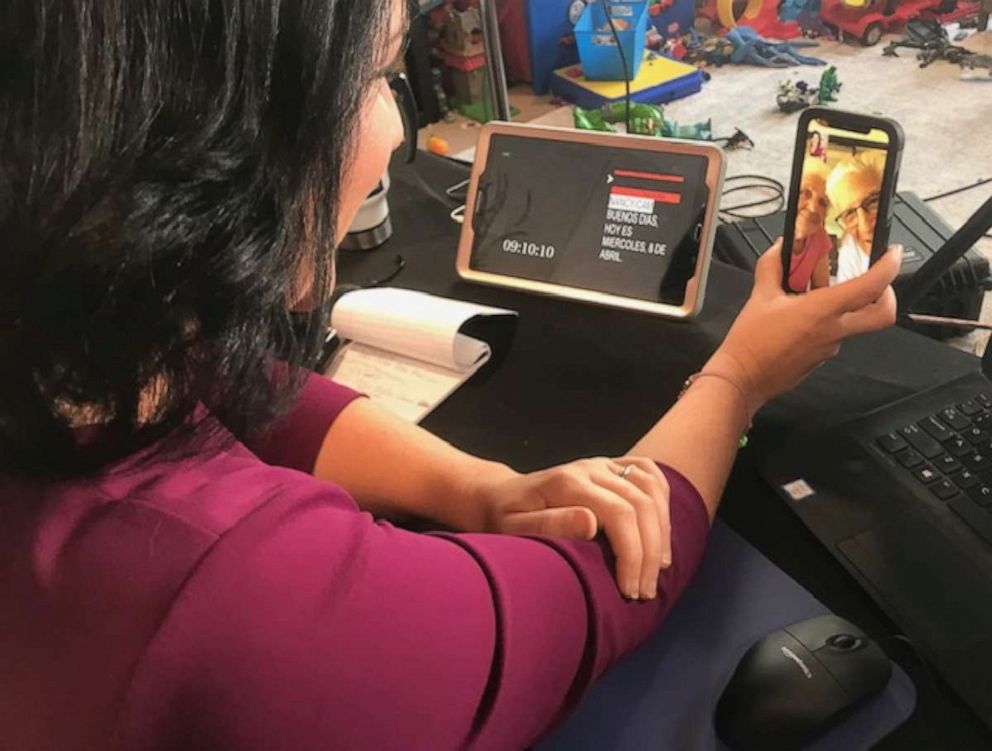
The team includes me, my young Cuban-American producer Natalie and our Venezuelan-born, work-at-home-mom of an 18-month-old, meteorologist-producer Irene. Add in my 85-year-old mother, Sarah, and my 92-year-old father, Orlando. Together we now produce daily news briefs in Spanish shared on social media and a blog on the Spanish section of our website, WFTV.com, the ABC-affiliate in central Florida.
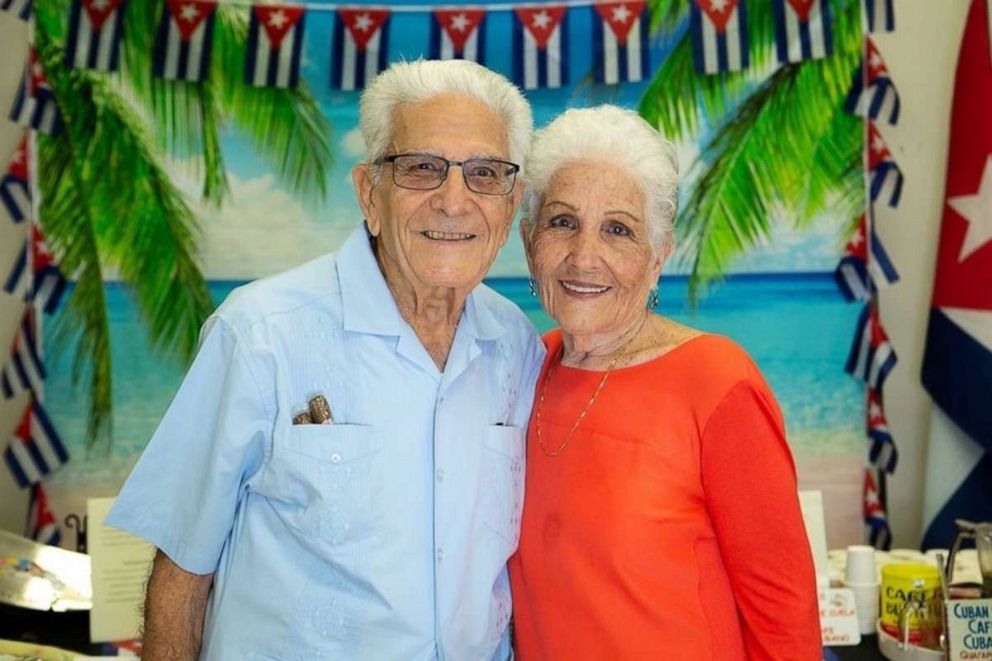
My parents are key to the whole production. Unpaid executive producers of sorts. We do a daily run-through over FaceTime. Papi (my dad) has always been my toughest critic. Mami (my mom) is usually more of a clothing and hair consultant ... a valuable service even now. They approve my stories, check my accent, pacing and more.
My favorite parts of the team are the directors, editors and prompter operators who do not speak Spanish but help with such enthusiasm (we'll have them fluent in six months).
One station videographer, Jason Surgent, does not speak Spanish but has happily picked up Spanish soundbites with the Puerto Rican vice mayor of the town of Deltona in neighboring Volusia County ... population: 90,000, at least 30% Hispanic.
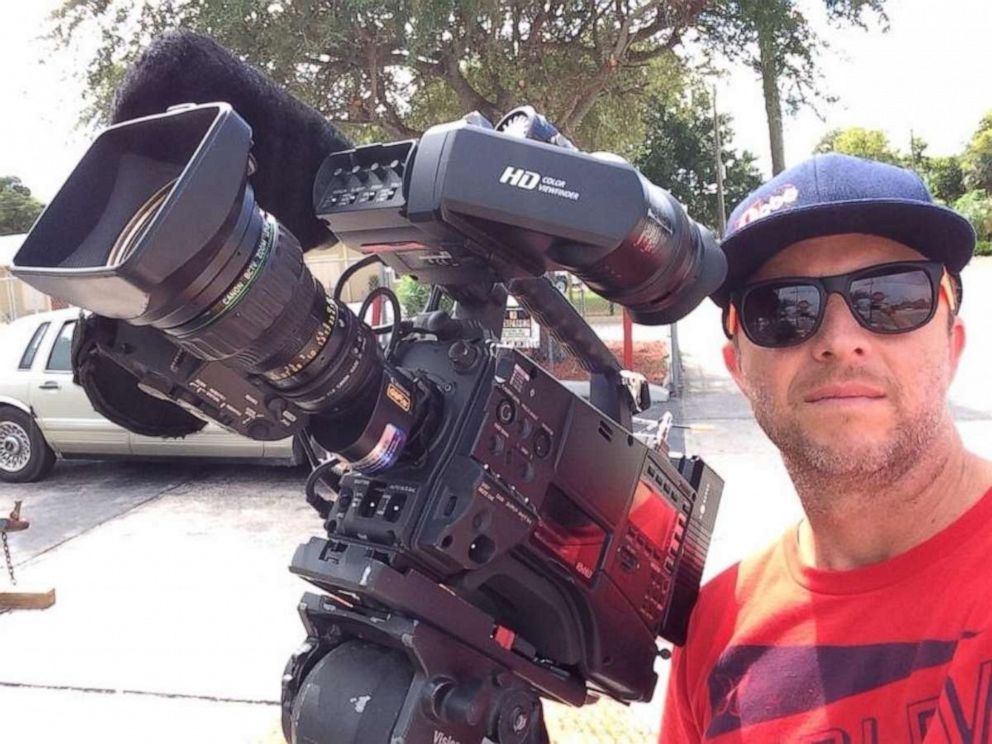
On the phone, Jason told me the vice mayor was "stoked" about our new content in Spanish. That is biculturalism in action.
We are part of a small but mighty army alongside so many other hard-working Spanish-speaking journalists and advocates. I often wonder if we're all thinking the same thing: "Does anyone see us?"
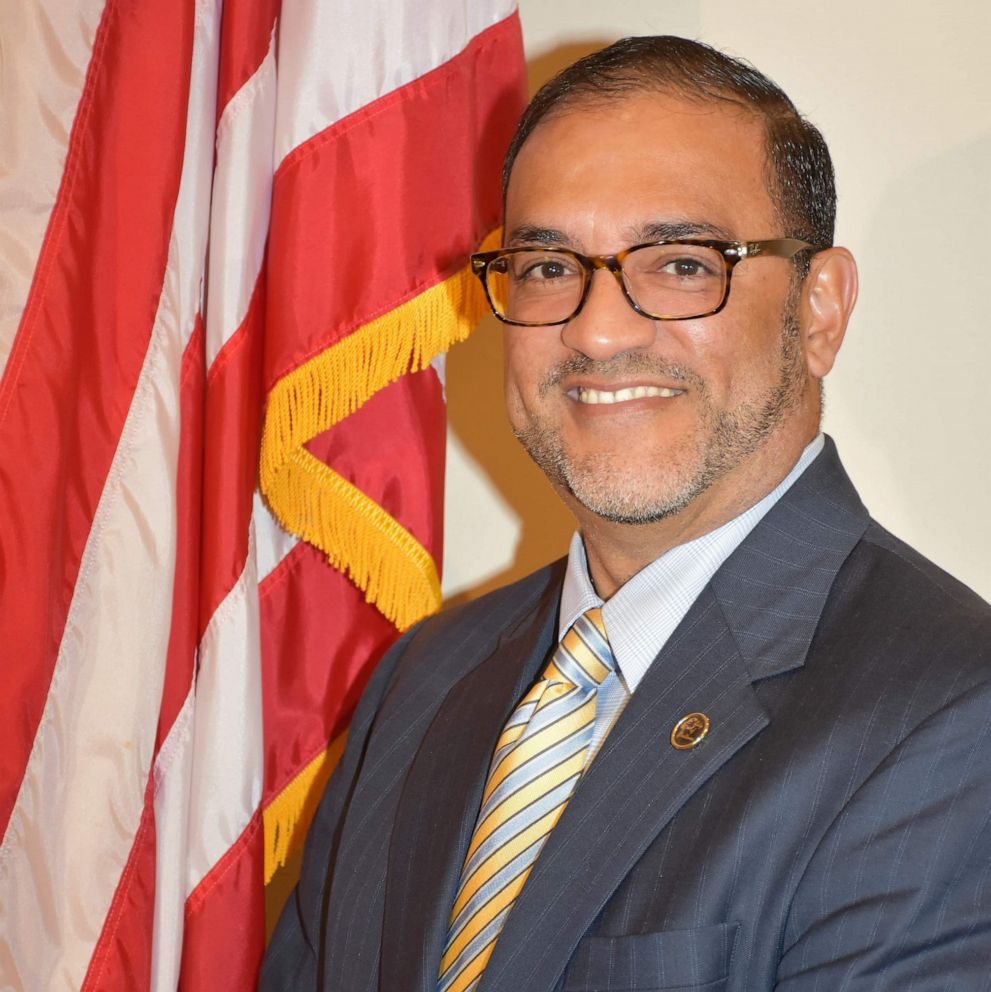
By April 13, COVID-19 testing had expanded in our community. Requirements had changed.
A viewer wrote to me on April 21 to say the information on the county's hotline about testing stated the opposite of what my TV station was reporting. It was an outdated recording explaining testing wasn’t for everyone. It said you had to have symptoms to be tested, even if you've had contact with someone who tested positive.
The information was more than a week old.
On my English-speaking newscast, I correctly reported testing is now open to everyone.
The situation had evolved. The hotline for Spanish speakers had not.
The information was wrong, and it caused confusion.
Addressing the issue at a news conference, the county's top health officer blamed a third-party contractor in charge of the recording.
He surmised the confusion may have contributed to a lower turnout on the first day of the county's mobile testing initiative.
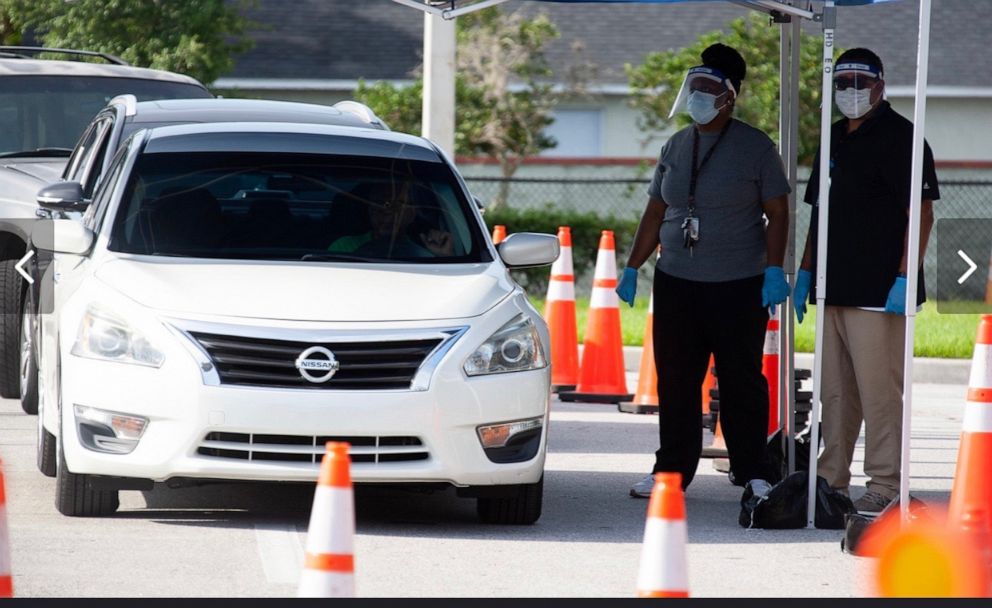
"We have to improve the communication within all demographics of our community," the mayor said after an announcement that 5 out of 6 recent deaths in the county were Hispanic residents.
With that, more than one month into this pandemic, we’re on a road to improvement in our corner of the United States.
According to the United States Hispanic Chamber of Commerce, there are more than 4.37 million Hispanic-owned businesses that, combined, contribute over $700 billion to the American economy every year.
A record 32 million Latinos are projected to be eligible to vote in the 2020 elections, according to the Pew Research Center.
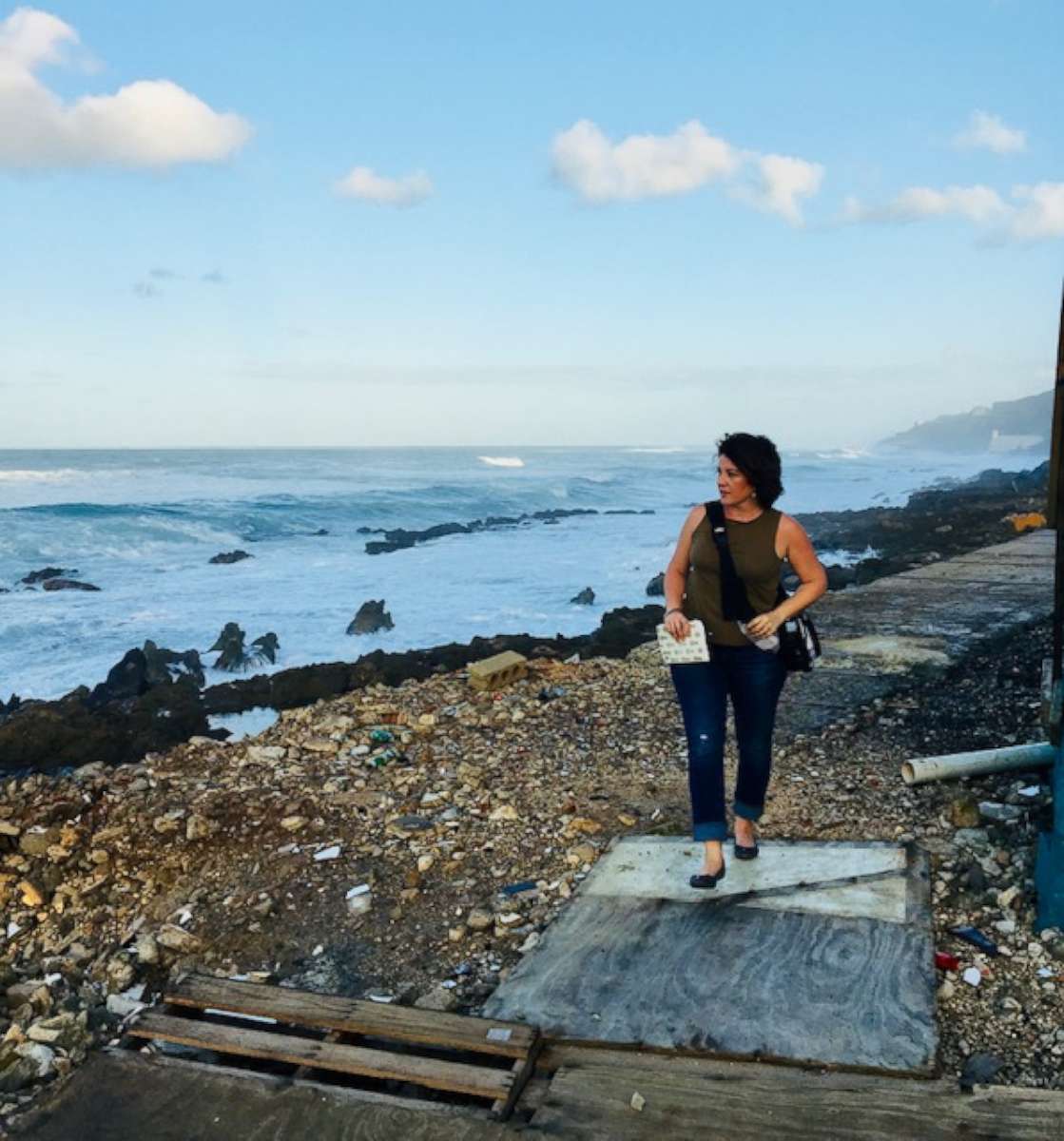
Hispanic-run nonprofits, community organizers, leaders, journalists and elected officials are fighting for funds, attention, a seat at the table and respect.
Given these facts, during a global health crisis … or any time… the question remains: Why must we still fight?
Nancy Alvarez is the morning anchor at WFTV Channel 9, the ABC News affiliate in central Florida and host of "News Night" on PBS-affiliate, WUCF-TV. She’s been covering Florida news for two decades with a focus on the Latino community and also covered the aftermath of Hurricane Maria. She is Cuban-American, a native Floridian and the mother of two.




